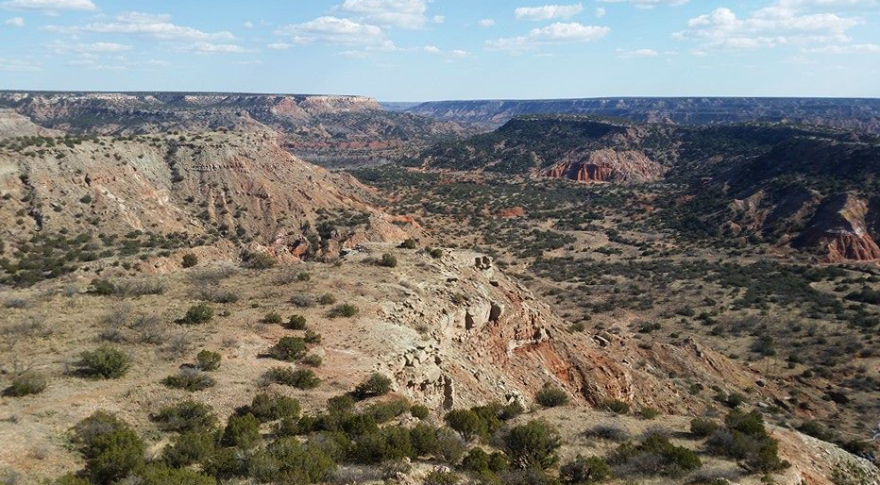I’m Alex Hunt, Professor of English at West Texas A&M University in Canyon for the HPPR Radio Readers Book Club 2022 Fall Read.
It’s my pleasure to be discussing Annie Proulx’s That Old Ace in the Hole, published in 2002. Proulx is best known for her novel The Shipping News, which won both the Pulitzer and the National Book Award, and her short story “Brokeback Mountain,” which caused quite a stir when Heath Ledger and Jake Gyllenhaal starred in the film version.
Whatever might happen in Hollywood, it’s a fact that Proulx’s characters are typically unlovely and unlovable. This is certainly true with That Old Ace in the Hole. Bob Dollar is a mediocre figure, an antihero at best. And the residents of the southern plains are sometimes lampooned quite harshly. Yet many of these characters are redeemed by their love of place and gift for storytelling—and Bob Dollar is a sucker for both.
Bob, an orphan from Denver who was raised in his uncle’s thrift shop, is a young man in search of an identity and a place to be. He is ill-suited for his job as a site scout for Global Pork Rind, a company and an industry that is (Proulx makes clear) no good for the southern plains.
I have to fight with my students who feel as if Proulx is just making fun of we people of the plains. Having read all of Proulx’s work, I assure them, she is often satirical of human nature, whether of Texans or New Yorkers or Canadians or anyone else of whom she writes. In That Old Ace in the Hole, Proulx certainly paints life in Denver, Colorado more harshly than in the Texas panhandle.
I think part of the problem on the part of readers is that they approach Proulx as a realist, an artist who depicts the world and human nature in a sort of common-sense photographic manner. But Proulx is not a realist. Her aesthetics are exaggerated, sometimes cartoonish, wildly funny verging on absurd. I point out to my students a scene in which young Bob Dollar examines a framed poster in his uncle’s thrift shop showing famous mountains and rivers arranged largest to smallest: “for years Bob believed that in some distant land hundreds of inverted ice-cream cone mountains gave way to an immeasurable plain cut by fifty rivers running parallel to each other. “It’s not a real place, you dunce” his uncle’s partner tells him. “It’s only for the sake of comparison.”
It’s going too far to suggest that Proulx writes of our region only for the sake of comparison, but it a mistake to assume that she is writing free of her characteristic exaggerated style, that her goal is realistic representation.
On the other hand, she does admire the place and seems to care about its future. For one thing, we see Bob Dollar come to know and love the place as the novel proceeds in its examination of towns modeled on places like Lipscomb and Higgins Texas, far in the northeast panhandle. He finds community and values he admires.
And the landscape itself becomes compelling. Proulx writes, “already he was taking pleasure in the subtle beauty of the panhandle, noting the groves and thickets along watercourses, huge coils of grapevine waving the trees into a coarse fabric. He thought the bold diagonal of caprock rim that divided the high plains from the southern plains, the red canyons of the Palo Duro, striking and exotic.” And he seems to be finding himself, as well, as he begins to believe in the region in a way very different than his employers at Global Pork Rind have in mind.
I’m Alex Hunt, Professor of English at West Texas A&M University in Canyon for the HPPR Radio Readers Book Club 2022 Fall Read. Thanks for listening.









